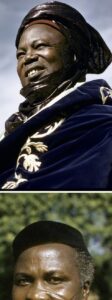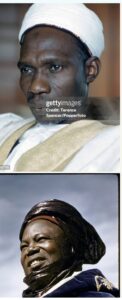January 15, 1966: The Day Nigeria Was Shaken to Its Core
January 15, 1966: The Day Nigeria Was Shaken to Its Core

On the morning of January 15, 1966, Nigeria witnessed its first-ever coup d’état, a violent upheaval that resulted in the deaths of prominent political leaders and senior military officers. This act of rebellion was largely orchestrated by officers from a specific ethnic group in the country, accounting for nearly all of those who planned and executed the coup.

Historian Max Siollun, drawing on the police report compiled by the Special Branch, provides a detailed account of the coup and its aftermath. This report, produced after the mutiny’s failure and the subsequent arrests of the conspirators, identified key leaders such as Major Emmanuel Arinze Ifeajuna, Major Chukwuemeka Kaduna Nzeogwu, Major Chris Anuforo, and others involved in the mutiny.

The coup’s aftermath saw the brutal murders or abductions of several influential figures, including Prime Minister Sir Abubakar Tafawa Balewa, Sardauna of Sokoto Sir Ahmadu Bello, and Chief Samuel Ladoke Akintola, among others. These events marked the beginning of a turbulent period in Nigeria’s history.
One of the most personal recollections of that day comes from Femi Fani-Kayode, whose father, Chief Remilekun Adetokunboh Fani-Kayode, was abducted during the chaos. Femi, just six years old at the time, witnessed the terror firsthand. Amid the confusion, a soldier unexpectedly reassured him, promising that his father would not be harmed, a moment that provided Femi with hope in the face of immense fear. Years later, he spoke with one of the mutineers, Captain Emmanuel Nwobosi, who confirmed Femi’s memory of the encounter.
Although many have tried to label the coup in various ways, it is clear that its consequences were far-reaching and devastating. The brutal killings and the subsequent political fallout led to a counter-coup six months later, igniting violence that culminated in the Nigerian Civil War, with devastating consequences for millions of people.
Femi Fani-Kayode reflects on the importance of understanding the profound impact of this tragic event, noting that had the coup leaders been prosecuted immediately, the political and social fallout might have been avoided. Instead, General Johnson Aguiyi-Ironsi’s decision to imprison the mutineers without prosecution fueled suspicion, particularly among northern officers, leading to further unrest and ultimately, a counter-revolution.
TRENDING SONGS
 WOMAN REVEALS HOW PATIENCE AND TIMING HELPED HER BUILD A PEACEFUL FIVE-YEAR MARRIAGE
WOMAN REVEALS HOW PATIENCE AND TIMING HELPED HER BUILD A PEACEFUL FIVE-YEAR MARRIAGE
 How N100m Was Mistakenly Paid Into Egbetokun’s Son’s Personal Account — FPRO
How N100m Was Mistakenly Paid Into Egbetokun’s Son’s Personal Account — FPRO
 RCCG PASTOR ANGRY OVER CALLING Him“MR” INSTEAD OF “DR,” DECLARES CURSE ONLINE
RCCG PASTOR ANGRY OVER CALLING Him“MR” INSTEAD OF “DR,” DECLARES CURSE ONLINE
 NPMA Appeals to Nigerian Government for Compensation After Lagos Market Fire
NPMA Appeals to Nigerian Government for Compensation After Lagos Market Fire
 Rest Every Four Hours, FRSC Issues Safety Guide for Fasting Motorists
Rest Every Four Hours, FRSC Issues Safety Guide for Fasting Motorists
 NNPC Boss Ojulari Bags UK Energy Institute Fellowship
NNPC Boss Ojulari Bags UK Energy Institute Fellowship
 Shock in Anambra: Bride Disappears Moments Before Wedding
Shock in Anambra: Bride Disappears Moments Before Wedding
 Nigerian Woman Returns ₦330 Million Accidentally Credited to Her Account
Nigerian Woman Returns ₦330 Million Accidentally Credited to Her Account
 APC Don Reach Morocco?’ VeryDarkMan Reacts to Seyi Tinubu Poster
APC Don Reach Morocco?’ VeryDarkMan Reacts to Seyi Tinubu Poster
 Bride Breaks Down in Tears as Wedding Meals Were Kept Secretly While Guests Go Home Hungry
Bride Breaks Down in Tears as Wedding Meals Were Kept Secretly While Guests Go Home Hungry
Share this post with your friends on ![]()













